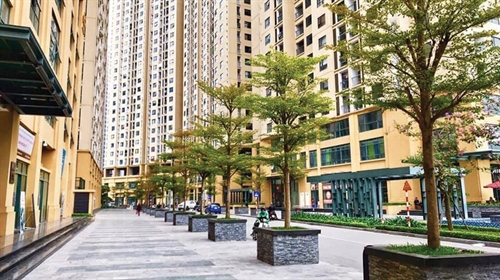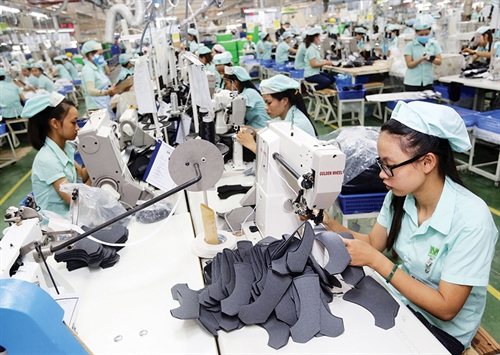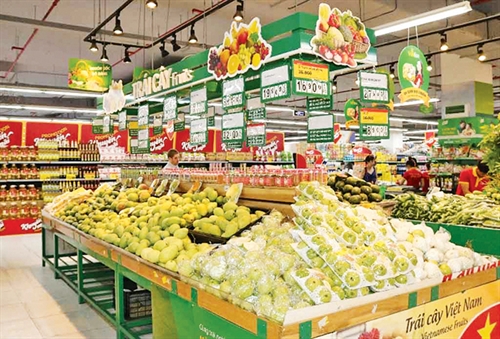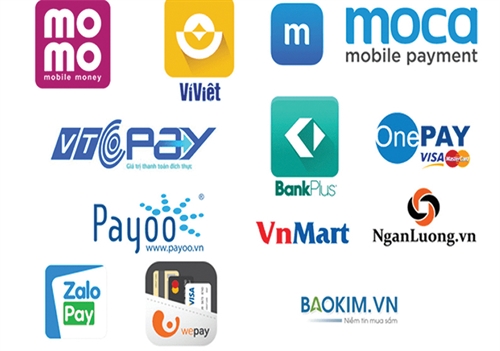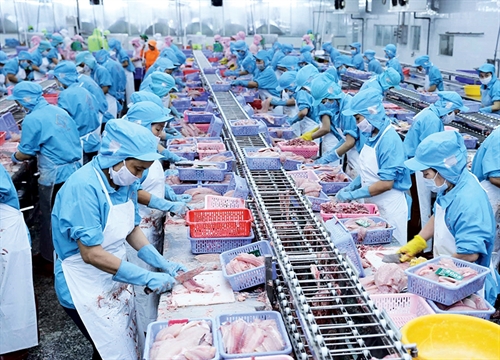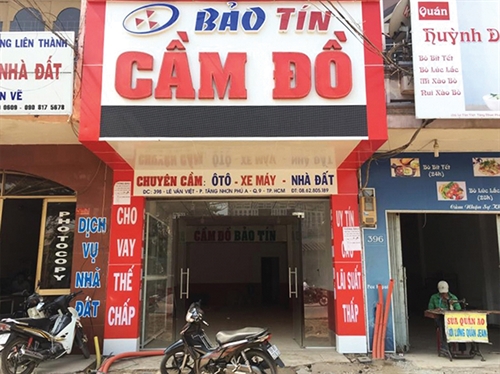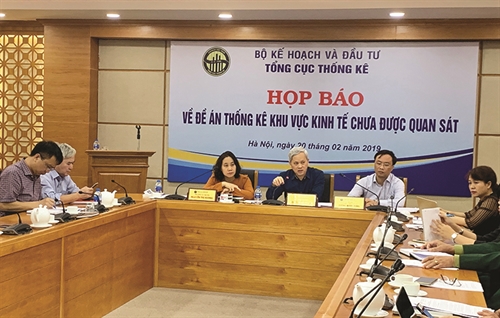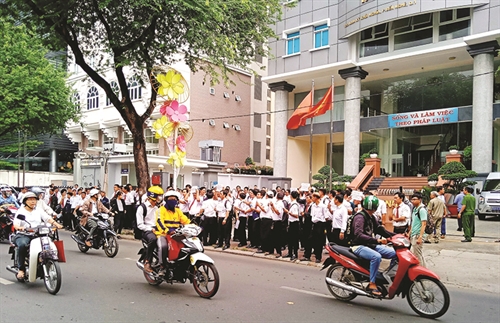Last month, Vietnam’s real estate market was shocked when Thanh Do (Empire) Group, the developer of Cocobay, a 51-hectare hospitality and entertainment complex project in the central coastal city of Da Nang, announced that they could not keep their commitment to pay annual returns to condotel buyers from next year.
In 2017, the project’s image overwhelmed the country’s media with Cristiano Ronaldo as the face of the venture and “Cocobay-My home in Vietnam” as its slogan. More than 1,700 customers have bought condotels, boutique hotels and villas at the project, with the developer committing to pay them an annual return of 10-12.5 percent during the first eight years. The Empire Group later blamed on the lack of a legal framework for condotels and on difficulties in operation management to dishonor their commitment.
The case of Cocobay stirs concerns about the future of condotel complexes, a type of property projects which has been mushrooming all over the country in the past few years. It also gives rise to an urgent need to shape a legal framework for condotel development, ownership and management which would facilitate the operation of real estate developers and investors as well as state management work of authorities.
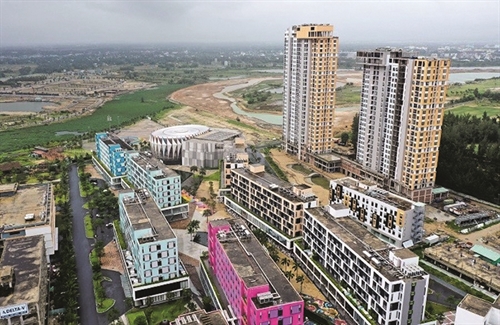 |
| A corner of Cocobay complex in Ngu Hanh Son district, Da Nang city__Photo: Internet |
The need to lay a legal foundation for condotel projects
Despite the boom of the condotel market over the past few years, surprisingly, there is not yet a legal definition of what condotel is.
At a recent press briefing of the Ministry of Construction, Nguyen Trong Ninh, Director General of the Housing and Real Estate Market Management Agency, admitted that even the term “condotel” has not yet officially appeared in any legal documents.
According to Mauro Gasparotti, Director of Savills Hotels APAC, condotels contain residential characteristics that make buyers identify it as a “second home” product but also have “hospitability” features designed following hotel models and standards in order to ensure profitability.
“The developers and buyers should understand that they are entering a new business which is no longer real estate but in fact hospitality. This industry could be very profitable if the right product is planned in the right market,” Gasparatti was quoted by theleader.vn as saying.
In fact, state authorities have been fully aware of the need to devise regulations governing new types of tourism accommodation. In April, the Prime Minister issued Directive 11/CT-TTg on a number of solutions to boost the realty market, urging related ministries and sectors to study and solve existing problems so as to soon introduce a legal framework for management and operation of such realties as resort villas, officetels and especially condotels. Accordingly, the Ministry of Natural Resources and Environment will study issues concerning land use regime applicable to condotel projects and grant of certificates of land use rights and ownership of land-attached assets to condotel buyers while the Ministry of Construction and Ministry of Culture, Sports and Tourism will consider construction standards and operation regulations for condotel buildings, respectively.
Nevertheless, these are not easy tasks and, although the Prime Minister requested relevant authorities to complete everything in this year, the work still lags behind schedule.
Explaining why such a delay might pose great risks to both condotel project owners and investors, lawyer Pham Thanh Binh from the Hanoi Bar Association said the development of condotel projects sticks to the principle of respect for people’s freedom of enterprise, in other words, businesses and people are free to do things that are not banned by law. However, although businesses are not prohibited from implementing condotel projects and people are not banned from buying and owning this property, both project owners and investors face numerous troubles when entering into condotel-related transactions which result from the lack of a legal framework for condotels, Binh said in an interview with the Dan Tri.
“The condotel-related deals are always linked with a real estate of great value but there is no law to protect involved parties or at least to identify whether such business is a type of real estate business or a mode of investment cooperation or a form of financial investment,” Binh said.
Turning back to the story of Cocobay, Nguyen Duc Thanh, Chairman of Empire Group, was quoted by the Vietnam Investment Review as saying that due to the lack of a legal framework, the venture failed to progress in the last two years, forcing the bank behind the project to freeze capital. “This led to a state of limbo for the entire project,” he blamed.
How to formulate condotel-retaled regulations
According to Nguyen Trong Ninh, for the time being, condotel projects are ruled by regulations on real estate business, natural resources and environment, tourist accommodation, registration of civil status, temporary residence and temporary absence, and management and operation of construction works, among others. However, there are three major issues concerning condotel projects that should be clarified. The first is land use regime, the second is regulations on recognition of ownership, and the third involves how to manage and operate property of this type.
Regarding the land use regime applicable to condotel projects, economist Nguyen Tri Hieu commented that the function of condotels is not yet clearly identified as for residence or lease. “If it is a product for lease, it must obey all taxation and land use regulations for business. In this case, a clear legal framework can help condotel developers take a mortgage at the bank for raising investment capital. If it is a housing product, a land use rights certificate should be granted so that owners’ rights can be protected,” Hieu talked to the Vietnam Investment Review.
As for regulations on recognition of ownership over condotels, according to Deputy Minister of Construction Nguyen Van Sinh, for condotel projects built on residential land, buyers may be granted certificates of permanent ownership. Meanwhile, ownership certificates granted to those buying condotels built on land areas planned for service or trade service would have a validity period.
Regarding the management and operation of condotel projects, Sinh said project owners may themselves operate their projects or outsource such job to others.
However, for the time being, it remains unclear which agency will be responsible for formulating regulations on management and operation of condotel projects.
Nguyen Trong Ninh said condotels have been listed in accommodation for tourism, so they must be regulated under the legal framework of the tourism sector, now under the Ministry of Culture, Sports and Tourism’s jurisdiction. Moreover, the issuance of a circular to govern such issues seems incompatible with current regulations. “Circular is a document explaining, or guiding the implementation of, documents which are issued by state agencies and fall within the management scope of a certain sector. Meanwhile, decree is a document issued by the Government to guide the implementation of laws or provide issues not yet governed by laws or ordinances,” Ninh explained. Therefore, the Ministry of Construction has proposed to the Prime Minister the formulation of a decree on management and operation of new types of realty projects such as condotels and officetels, he revealed.
According to statistics of the Ministry of Construction, the country now has around 148 condotel projects with approximately 29,000 apartments built by 52 project owners in coastal provinces and cities, mainly Da Nang, Phu Quoc island of Kien Giang province, Khanh Hoa, Ba Ria-Vung Tau and Binh Thuan.-
